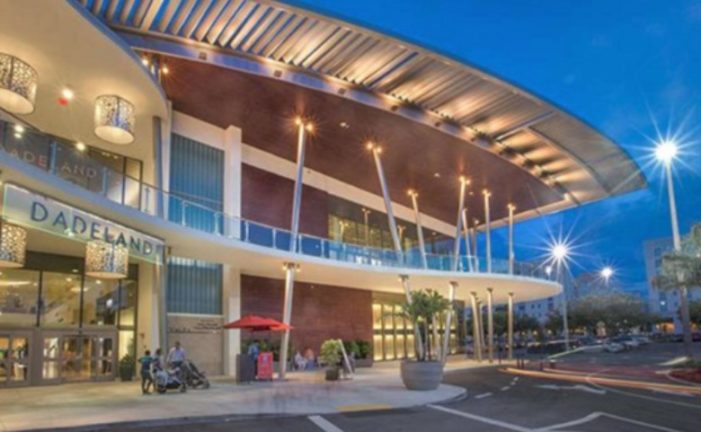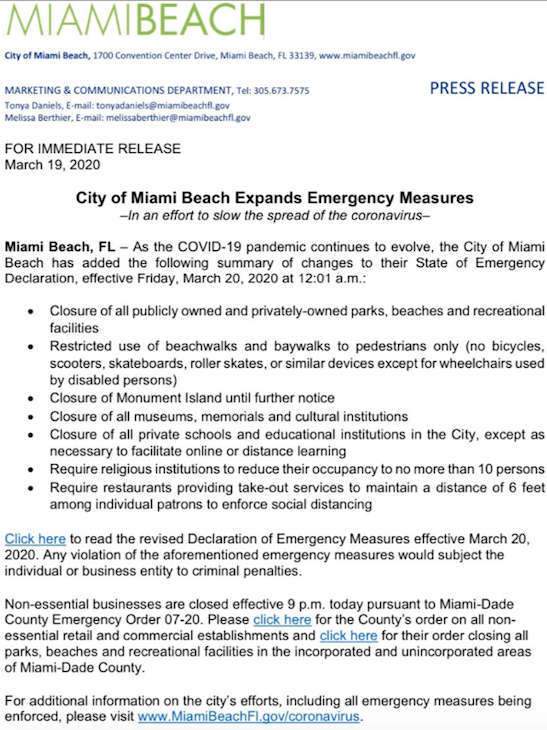Updated: Okay, now it’s almost everything that will be closed. Almost.
Starting Friday, you can’t do a lot of things. You can’t get your hair cut. You can’t get your nails done. You can’t pawn your watch to buy groceries. You can’t buy shoes or shirts. You can’t play golf. You can’t play tennis. You can’t play poker.
On Thursday, Day 4 of the #StayHome movement started to lower the community spread of the coronavirus, Miami-Dade Mayor Carlos Gimenez signed an executive order closing all “non-essential” retail and commercial establishments starting at 9 p.m.
That includes art and craft supply stores, barbers, beauty salons, nail studios, bookstores, casinos (Calder, Casino Miami, Magic  Casino and Hialeah Park), clothing boutiques, indoor amusement parks, trampoline parks, driving lanes, jewelry stores, malls, music supply stores, pawn shops, social clubs, tennis clubs, golf courses, fishing charters, souvenir stores, spas, sporting goods stores, tutoring centers, music classes, toy stores and children’s stores.
Casino and Hialeah Park), clothing boutiques, indoor amusement parks, trampoline parks, driving lanes, jewelry stores, malls, music supply stores, pawn shops, social clubs, tennis clubs, golf courses, fishing charters, souvenir stores, spas, sporting goods stores, tutoring centers, music classes, toy stores and children’s stores.
It’s a still a strange kind of half lockdown because you can’t golf, but you can go buy dog food at your local Pet Supermarket. You can’t rent a fishing boat but you can go to the laundromat to wash your clothes. You can’t go to your local fashion boutique, where there are almost never more than eight people inside, but you can go to the hardware store, or the bank.
Read related: Day 3 of COVID-19 lockdown: more closures, scooter ban, virtual meetings
Some banks, like Regions, have taken it upon themselves to close the lobby to appointments only and make all other services drive through.
“Miami-Dade County is closing these and other businesses based on recommendations of the Centers for Disease Control and Prevention (CDC). These recommendations become more stringent as the number of COVID-19 cases grows in our county and 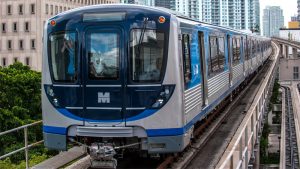 around the world,” Gimenez said.
around the world,” Gimenez said.
The numbers on Thursday hit triple digits for Miami-Dade, which also saw its first day with more cases than Broward — which was an early “cluster” — with 101 and 96 positive-tested cases. Of the 337 others who were tested in Miami-Dade, only 221 have gotten back negative results. The other 116 are pending.
And as more tests are done, more positives will be racking up.
But we can still ride the bus or the Metrorail — which is still running a regular schedule service — to jobs that aren’t affected, like accounting and law offices, banks, or manufacturing or bottling plants or other industrial sites, architects’ offices or engineering firms, because development cannot be stopped, after all. That’s also why construction sites remain open “regardless of building type.” Ladra doesn’t see how architects’ offices and construction sites are “essential businesses.”
Late Thursday afternoon, Commissioner Daniella Levine Cava, who is running for county mayor, sent Gimenez a memo urging  him to suspend fares on buses and Metrorail and for there to be more cleaning and sanitizing. She did not urge him to close transit because she said it is still essential for some people to get to work or get essential supplies.
him to suspend fares on buses and Metrorail and for there to be more cleaning and sanitizing. She did not urge him to close transit because she said it is still essential for some people to get to work or get essential supplies.
She also thought that meals provided to seniors might be expanded to families in need and wants to see more drive-through testing operations like the one that opened Thursday in Cutler Bay at the Doris Ison Health Center, 10300 SW 216th St.
But she wondered why the county’s Emergency Operations Center was still at a level 2 when the state’s EOC and the Federal Emergency Management Administration had moved to level 1 “due to the severity of the situation we are confronting.
“Wouldn’t the coordination of resources and information be more in line with the state and federal emergency posture if we fully activated our EOC?”
Ya think? Gimenez is still acting slow.
The mayor’s order also allows the operation of businesses at the airport, seaport or other government facility, as well as all medical facilities, doctors’ offices and airlines, although with fewer flights. Does that mean the Versailles at MIA is open?
Read related: Miami commissioner tries Tallahassee pull to get virtual meetings approved
Businesses that can remain open are the no-brainers like grocery stores, pharmacies, gas stations and convenience stores. Others that may not have been as obvious (or as necessary) include:
- assisted living facilities (ALFs), nursing homes, adult day care centers and senior residential facilities
- business that interact with customers solely through electronic or telephonic means
- childcare facilities, but limiting to a maximum of 10 children and teachers in any one group
- food cultivation, including farming, livestock and fishing
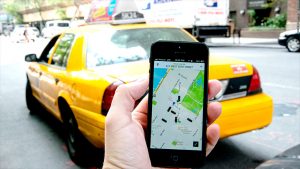
- hardware stores
- home-based care for seniors, adults or children
- landscaping and pool services
- laundromats
- logistics providers
- mail and shipping services
- natural and propane gas providers
- newspapers, TV, radio and media services
- restaurant kitchens, for pick-up and delivery only
- services providing food, shelter, social services and other necessities for the economically disadvantaged
- taxis and private transportation providers
- telecommunications providers
- waste management service, including collection and disposal
Late Thursday night, he added a few more allowed businesses, for clarification purposes (certainly there were complaints):
- Hotels, motels and other commercial lodging establishments and temporary vacation rentals. (Restaurants, bars and fitness centers in hotels, motels and other lodging establishments remain closed or restricted).
- Automobile dealerships, as long as those businesses ensure that customers practice social distancing of six feet.
- Residence halls at universities, colleges or technical colleges, if needed to accommodate students who cannot return to their homes.
- Mortuaries, funeral homes and cemeteries.
- Private and municipal marinas and boat launches, docking, fueling, marine supply and other marina services.
- Veterinarians and pet boarding facilities.
“I know it is very frustrating that we have new closures every day, but they are vital to protecting everyone in our County,” 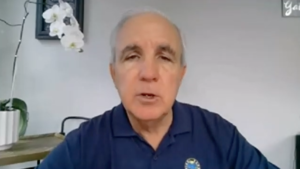 Gimenez said. “We are acting on CDC recommendations.”
Gimenez said. “We are acting on CDC recommendations.”
What’s frustrating is that we know more closures are coming tomorrow because if all that is happening, there will still be community spread. Pet food and pet supplies, for example, ought to be in our emergency provisions and we should all have enough for a month. Automobile dealerships? Is someone really buying a car right now?
“In addition to these new business closures, each and every one of us must take personal responsibility to help stop the spread of this virus. We must all act as if we are infected and take every precautionary step to prevent transmitting this virus to others.”
Preventive measures include regular hand washing, sanitizing all frequently touched surfaces, and strict social distancing of at least six feet between people.
“Your best protection is to stay home as much as possible,” Gimenez said in his daily video message from self-isolation.
In Miami Beach, the city will require patrons waiting in line for take-out outside a restaurant to stand six feet apart. They also went a step further, closing all parks and recreational spaces — both publicly and privately owned. They expanded emergency measures to close private schools and have also closed Monument Island and all museums and cultural institutions.
The city also requires religious institutions and houses of worship to reduce their capacity to 10 people. And only pedestrians and people in wheelchairs can use the beachwalk and baywalk; no scooters, bicycles, rollerskates or skateboards allowed.
Read related: Miami-Dade Courts close after positive test, amid more COVID-19 shutdowns
By 7 p.m., Miami Mayor Francis Suarez, who has tested positive and is in Day 7 of self-isolation, was warning people to shelter in place whenever possible.
“Fellow Miamians,” he said in his most recent video update on Facebook. “If it is absolutely necessary to leave your place of 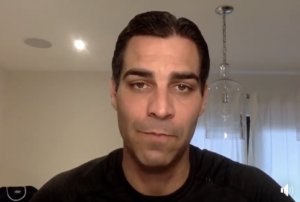 residence, whether to obtain or perform vital medical or health services, or to otherwise facilitate authorized activities necessary for continuity of social and commercial life, you should at all times reasonably comply with social distancing requirements.
residence, whether to obtain or perform vital medical or health services, or to otherwise facilitate authorized activities necessary for continuity of social and commercial life, you should at all times reasonably comply with social distancing requirements.
“Since declaring a state of local emergency in the city of Miami on March 9, the COVID-19 virus has continued to spread in Miami-Dade County and across the nation, despite our best efforts, and more emergency measures may be required,” Suarez said, adding that asymptomatic people can and likely are infecting others as we sit here now.
“Scientific evidence shows that at this stage of the emergency it is absolutely essential to slow virus transmission as much as possible to protect our most vulnerable residents, particularly the elderly and those with pre-existing conditions, and to prevent our health care system from being overwhelmed,” he said, obviously reading.
“I urge you in the strongest of terms to shelter in place to the extent possible and to avoid any and all interactions with others.”
Yeah, that’s not scary at all.
Everyone should have seen Contagion by now.
For the most recent updates on the situation and a complete list of the businesses being closed, go to miamidade.gov/coronavirus.

